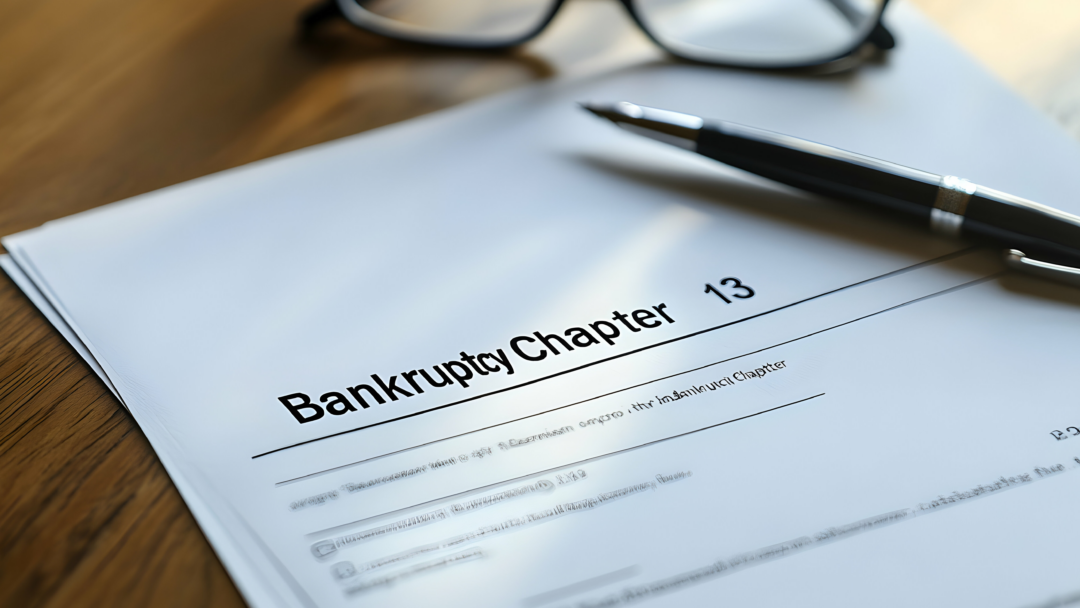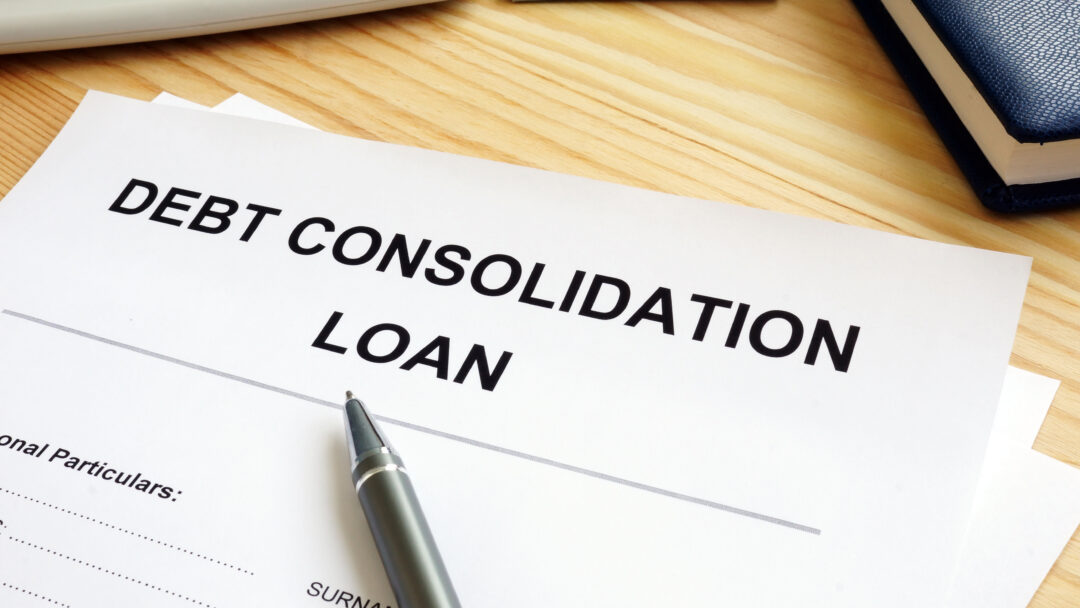Bankruptcy vs Debt Settlement
- Bankruptcy is court-supervised; debt settlement negotiates reduced payments. .
- Bankruptcy affects credit for 7-10 years; debt settlement for 7 years.
- Bankruptcy is for severe hardship; debt settlement suits negotiable debts.
Free Consultation with a Certified Debt Specialist
Start with a Free No-Obligation Consultation
If you’re dealing with debt and feel unsure about what to do, you’re not alone! Two common options to address debt are bankruptcy and debt settlement. Let’s dive into both of these approaches to see which one may be the right fit for you.

See if you qualify for debt relief!
Differences Between Bankruptcy and Debt Settlement
Debt settlement and bankruptcy offer relief for those facing overwhelming debt. Here’s a quick comparison:
- Bankruptcy: This is a court-supervised process with two main options for individuals:
- Chapter 7: Eliminates most debts but stays on your credit report for up to 10 years.
- Chapter 13: Rather than eliminate debt, it creates a debt repayment plan lasting 3-5 years.
- Debt Settlement: This option is a negotiation process where you work with creditors to reduce your debt amount. Debt settlement companies can assist, often for a fee. It stays on your credit report for seven years, but the impact on your credit is typically less severe than bankruptcy.
Here’s a table summarizing the key differences:
| Feature | Debt Settlement | Bankruptcy |
| Process | Negotiate with creditors to pay less than what you owe Debt settlement companies can help you in this process | Legal process to wipe out debt or create a repayment plan |
| Credit Score Impact | Stays on credit report for 7 years and has a negative impact, but generally less severe than bankruptcy | Stays on credit report for 7-10 years and has a significant negative impact |
| Time to Complete | Time varies, but typically 1-3 years | Can be completed in 6-8 months (Chapter 7) or 3-5 years (Chapter 13) |
| Court Involvement | no | yes |
When to Consider Debt Settlement or Bankruptcy
If you’re struggling with debt, you may be considering debt settlement or bankruptcy as possible solutions. While both options can help you get out of debt, they have different pros and cons. Here’s a guide to help you decide which option might be right for you:
Consider Debt Settlement if:
- You Can Negotiate With Your Creditors: You’ll need to convince creditors to accept a lower payoff amount for your debts. Debt settlement companies can help you with this and will negotiate on your behalf for a fee.
- You Can Afford a Lump-Sum Payment: Debt settlement often requires a lump-sum payment to your creditors to settle your debts.
- Your Income is Stable: You’ll need to be able to make payments on your regular bills and save some money for emergencies while you’re paying off your debt settlement.
- You Found a Company You Can Trust: Negotiating with creditors is a crucial part of debt settlement. It’s important to find an accredited company with experience that you can trust to represent you in this process for a successful financial outcome and peace of mind.
Consider Bankruptcy if:
- You’ve Exhausted Other Options: If you’ve tried other ways to get out of debt, such as debt consolidation or credit counseling and they haven’t worked, bankruptcy may be a last resort.
- You’re at Risk of Losing Your Home: Chapter 13 bankruptcy may help you catch up on your mortgage payments and save your home from foreclosure.
- You Can’t Afford Your Debt Payments: If you’re struggling to make your minimum debt payments each month, bankruptcy may help you get a fresh start.
- You Have No Other Options: If you’re using payday loans to pay off your other debts, or you’ve lost your job and can’t afford to make debt settlement payments, bankruptcy may be a last option.
General Rule:
- If your monthly debt payments (excluding mortgage or rent) are more than 20% of your income, you have a debt problem. Consider talking to a non-profit credit counselor to discuss your options. They can help you evaluate your financial situation and recommend the best course of action for you.
Bankruptcy Options
Bankruptcy is a legal process overseen by the court that allows individuals to eliminate or repay some or all of their debts. There are two main types of bankruptcy for individuals: Chapter 7 and Chapter 13. Here’s a brief description of each, along with the pros and cons to consider:
Chapter 7 Bankruptcy
Chapter 7 is a liquidation bankruptcy, meaning you sell most of your assets to pay back creditors. It’s generally the fastest way to eliminate most unsecured debts (credit cards, medical bills, etc.) and may offer a fresh financial start.
- Pros:
- Eliminates most debts, giving you a clean slate.
- Stops creditor collection activity upon filing.
- It’s a relatively quick process, typically discharged in 6-8 months.
- You don’t have to pay taxes on the forgiven debt.
- Cons:
- It stays on your credit report for 10 years.
- In some states, you may be required to sell assets (except for exempt items) to repay creditors.
- You cannot file for Chapter 7 bankruptcy again for eight years.
Chapter 13 Bankruptcy
Chapter 13 is a reorganization bankruptcy, allowing you to create a court-approved repayment plan to repay your creditors over 3-5 years. This option lets you keep your property, like your house and car, as long as you stay current on your repayment plan.
- Pros:
- Protects your property from foreclosure and repossession.
- Allows you to repay your debts through a manageable court-ordered payment plan.
- You don’t have to pay taxes on the forgiven debt.
- There’s a shorter waiting period (2 years) than Chapter 7 to file again for bankruptcy.
- Cons:
- Stays on your credit report for 7 years.
- It requires you to commit to a court-ordered repayment plan, which can be challenging if your income fluctuates.
The best bankruptcy chapter for you will depend on your specific situation. Consider factors like the amount of debt you have, the type of assets you own, and your ability to repay your debts. Consulting with a bankruptcy attorney can help you understand your options and determine which chapter best addresses your financial situation.
Bankruptcy Process and Timeline
There are two main types of bankruptcy for individuals: Chapter 7 and Chapter 13. While the overall process for each involves similar steps, the time it takes to complete each chapter differs.
General Process:
- Consultation: Discuss your financial situation with a bankruptcy attorney.
- Information Collection: Gather documents about your income, assets and debts.
- Preparation: The attorney will prepare the bankruptcy petition and other required documents.
- Credit Counseling: Complete a credit counseling course approved for bankruptcy.
- Filing: The attorney will file the petition with the bankruptcy court.
- Meeting of Creditors: Attend a meeting with the court-appointed trustee and your creditors (applicable to both Chapter 7 and 13).
- Debtor Education: Complete a second credit counseling course focused on financial management.
- Discharge/Repayment Plan:
Chapter 7: Receive a court order discharging most debts
Chapter 13: Make payments according to a court-approved plan, followed by discharge of remaining debts.
Timeline:
- Chapter 7: This is a liquidation process where some assets are sold to pay creditors. It’s generally faster, taking approximately 4-6 months to complete from filing to discharge.
- Chapter 13: This allows for repayment of debts over time through a court-approved plan. It takes significantly longer, typically 36-60 months to complete the repayment plan and receive a discharge.
Debt Settlement Process and Timeline
Debt settlement can be an option for those struggling with unsecured debt. Here’s what to know about the process and timeline:
General Process:
- Enrollment: You contract with a debt settlement company and stop making payments to creditors directly.
- Savings: You begin making monthly payments to the company, which are held in an escrow account. These payments may include the company’s fees (typically 15-25% of the settled debt).
- Negotiation: The company negotiates with your creditors on your behalf to settle your debts for a lower amount.
- Payout: Once enough money accumulates in escrow to cover the settlement amount and fees, the company pays your creditors.
Debt Settlement: Your creditors may report your accounts as settled.
Timeline:
The debt settlement process varies but typically takes 2-3 years to complete.
All You Need To Know
We’ve put all of our essential resources in one spot. Everything from debt resolution to taking control of your financial future . Need to talk? Our experts are here to help. Call us anytime for a free no-obligation consultation.
Is Bankruptcy the best option for you?
- Explore Debt Relief
- Up To 50% Lower Monthly Payments
- Reduce Multiple Payments to One
- Debt Free in 24-48 Months
- Quick 2-Minute Approval
Essential Reading
The latest debt relief news, tips, and resources from our team.
We’ve transformed the lives of more than 500,000 people

“The anxiety is gone, I am credit card debt-free. And that right there, I never thought I would be able to say those words, and it just feels so good.”
Michelle saved 23% on her debt

Now I’m able to go on vacation for the first time in a long time- I was able to go and relax. I couldn’t do that before.

Now I wake up knowing that I am paying off my debt, it’s like a weight lifted off my chest and I can breathe a bit more.

“The anxiety is gone, I am credit card debt-free. And that right there, I never thought I would be able to say those words, and it just feels so good.”
Michelle saved 23% on her debt

Now I’m able to go on vacation for the first time in a long time- I was able to go and relax. I couldn’t do that before.

Now I wake up knowing that I am paying off my debt, it’s like a weight lifted off my chest and I can breathe a bit more.

“The anxiety is gone, I am credit card debt-free. And that right there, I never thought I would be able to say those words, and it just feels so good.”
Michelle saved 23% on her debt

Now I’m able to go on vacation for the first time in a long time- I was able to go and relax. I couldn’t do that before.
All You Need To Know
We’ve put all of our essential resources in one spot. Everything from debt resolution to taking control of your financial future . Need to talk? Our experts are here to help. Call us anytime for a free no-obligation consultation.
Do You Qualify For Debt Consolidation?
- Up To 50% Lower Monthly Payments
- Reduce Multiple Payments to One
- Debt Free in 24-48 Months
- Quick 2-Minute Approval
Essential Reading
The latest debt relief news, tips, and resources from our team.
We’ve transformed the lives of more than 500,000 people

“The anxiety is gone, I am credit card debt-free. And that right there, I never thought I would be able to say those words, and it just feels so good.”
Michelle saved 23% on her debt

Now I’m able to go on vacation for the first time in a long time- I was able to go and relax. I couldn’t do that before.

Now I wake up knowing that I am paying off my debt, it’s like a weight lifted off my chest and I can breathe a bit more.

“The anxiety is gone, I am credit card debt-free. And that right there, I never thought I would be able to say those words, and it just feels so good.”
Michelle saved 23% on her debt

Now I’m able to go on vacation for the first time in a long time- I was able to go and relax. I couldn’t do that before.

Now I wake up knowing that I am paying off my debt, it’s like a weight lifted off my chest and I can breathe a bit more.

“The anxiety is gone, I am credit card debt-free. And that right there, I never thought I would be able to say those words, and it just feels so good.”
Michelle saved 23% on her debt

Now I’m able to go on vacation for the first time in a long time- I was able to go and relax. I couldn’t do that before.









